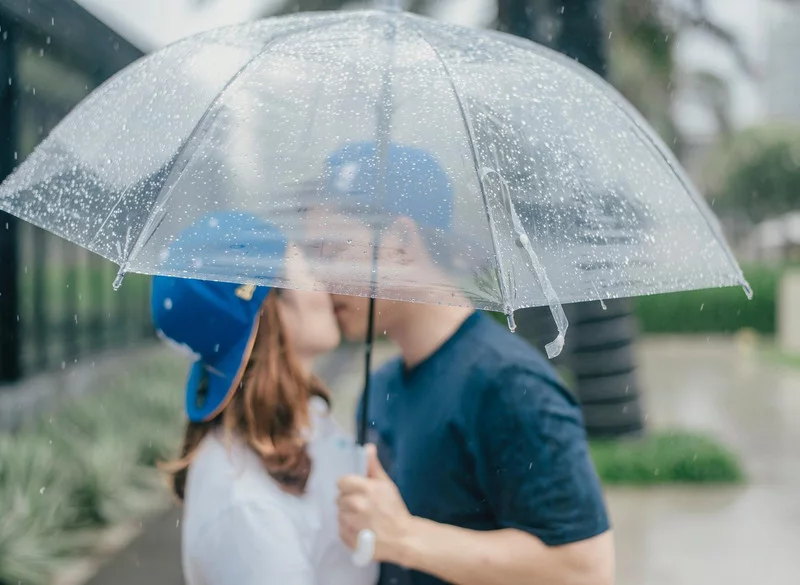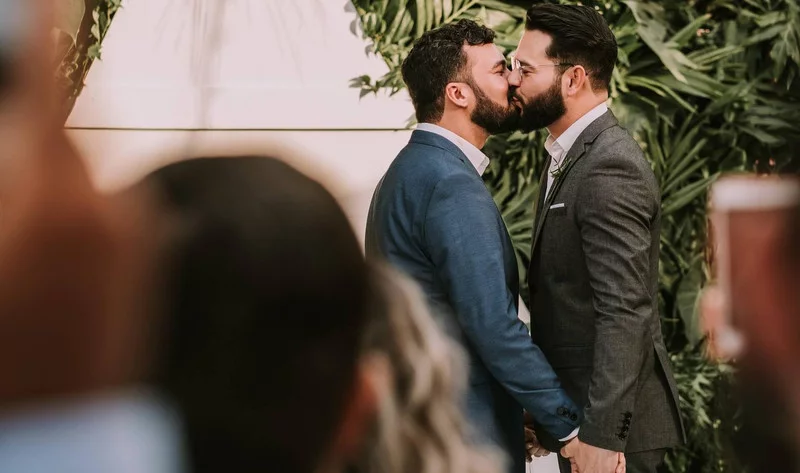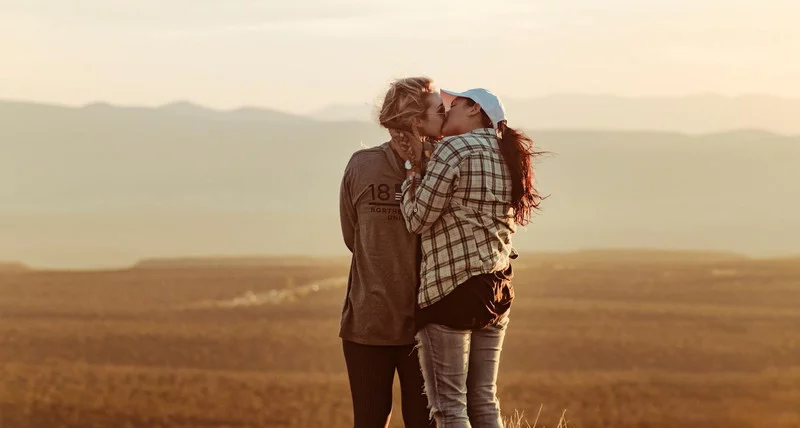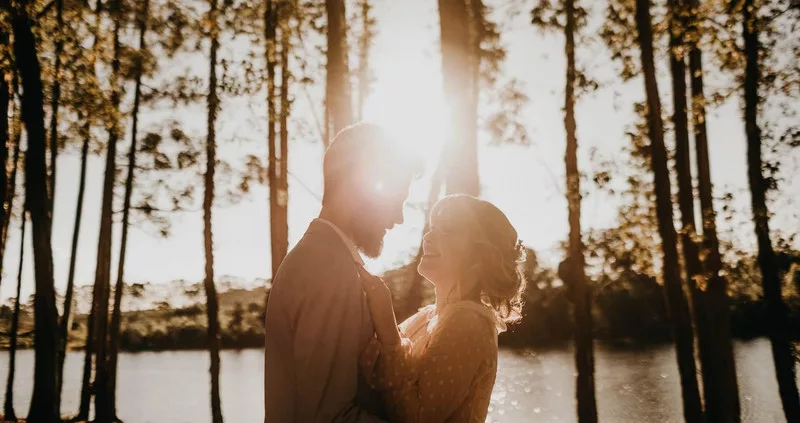
Kissing Day: 10 facts about kissing
From “Save your kisses for me” to “Rote Lippen soll man küssen” and “Bussi Baby”. Many musicians have already written songs about one of the most beautiful things in the world: kissing. Love motivates and inspires. But why do many people actually prefer to kiss with their eyes closed, how many kisses do we give out on average in our lives and why can kissing be seen as a little workout? To mark Kissing Day on July 6, we looked at questions like these and compiled facts about kissing.
From scientific studies to the longest kiss
At some point, there was the first kiss. But why we humans started kissing in the first place is not 100 percent clear. One theory focuses on food intake. According to this theory, kissing could go back in evolutionary terms to the passing on of pre-chewed food from mother to offspring. Neurologists and sexologists, on the other hand, see kissing primarily as a biological tool for choosing a partner. Because when we kiss, we analyze our partner's immune system - via our taste and olfactory nerves. And the more different our genetic immunity is, the more resistant and stronger the offspring will be. Historians suspect that India is the country of origin of kissing. This is because the oldest artefacts relating to this gesture were found there.
Exciting, isn't it? But it gets even more interesting - with our 10 facts:
1) Health booster: A whole sea of happiness messengers - from endorphins to serotonin and dopamine - are released when we kiss. In addition, a whole 100 billion nerve cells are tickled. This alone illustrates how intense this ritual is for us humans. But kissing is also healthy. It makes us feel less stressed and less anxious and painful. In addition, kissing increases our pulse and body temperature, boosts our metabolism and blood circulation and strengthens our immune system. Our saliva plays a key role here, as more of it is produced during kissing. And saliva in turn contains enzymes that can protect people from tooth decay or periodontal disease. In total, 80 million bacteria migrate from one partner to the other during an intimate kiss and vice versa - in just a few seconds. This strengthens our immune system and makes us more resistant.
2) Our instincts set the tone: Once again, we come back to our roots, because kissing is not a skill we have to painstakingly acquire, but something that is instinctively within us. And we are not alone on this planet. Orangutans and other primates also love kissing. Bonobos in particular, an African species of dwarf chimpanzee, are considered to be true lovebirds who take every opportunity to cuddle with each other. Elephants, on the other hand, intertwine their trunks, while geese and pigeons express their affection by beaking.

3) A little workout: Our body has 640 muscles - and all 34 facial muscles are used when we kiss. At the same time, we no longer take our average 20 breaths per minute, but a whole 60. And then there are also around 130 heartbeats per minute, which get our cardiovascular system working at full speed. All of this means that kissing is a little workout - not only for our face, but also for our heart, lungs etc. According to researchers, we burn 12 to 20 calories during an intimate kiss.
4) The longest kiss: On average, a kiss nowadays lasts twelve seconds. That's more than twice as long as in the 1980s. Back when we were still wearing perms and shoulder pads, we only kissed for an average of 5.5 seconds. The record for the longest kiss in the world has been held by two Thais since 2013. They made out for 58 hours, 35 minutes and 58 seconds. The most kisses within one minute, on the other hand, were achieved by an American couple: in 2012, they kissed 258 times within 60 seconds.

5) Prefer to kiss with your eyes closed: 92 percent of all women and around 50 percent of all men prefer to kiss with their eyes closed. For some, the passion associated with this may play a role, but it is primarily a matter of sensory overload. This is because many find it difficult to process visual and tactile sensory impressions at the same time. As a result, they close their eyes so that they can concentrate fully on their sense of touch.
6) Forbidden ritual: As beautiful as the ritual is, kissing on the mouth in public is forbidden in certain countries. These include Dubai, India and Indonesia. In China and Japan, kissing in public is also frowned upon - even if there are no penalties. If you want to be on the safe side in these regions, you should therefore move the cuddling session to your own four walls or hotel room.

7.) 100,000 kisses per lifetime: According to researchers, we give out 100,000 kisses on the mouth over the course of our lives. And those who kiss a lot can even extend their lifespan by up to five years, they say. But you shouldn't rely on that. But what has been proven in any case is that kissing makes us more relaxed: those who have been kissed before a challenging situation are less likely to lose their nerve.
8) Kissing strengthens the relationship: In 2013, British psychologist Rafael Wlodarski discovered that the frequency with which couples kiss is directly linked to their satisfaction with their relationship. A lot of kissing strengthens the relationship. With the help of another study, he discovered that people who value long-term relationships also find kissing more important than others.

9) Other countries, other kisses: Globalization - with all its developments - has not left the Inuit, Lapps and Polynesians unscathed, but they have nevertheless retained one peculiarity: they still prefer rubbing each other's noses instead of kissing. Kisses, on the other hand, as most Europeans know them, are distributed by representatives of these peoples mainly on sore parts of the body, similar to mothers blowing caringly on their children's scrapes.
10) Kissing is science: Why do we know all this? Because there is even a scientific field of research that deals with kissing: so-called philematology. This involves researching the physiological, social and cultural aspects of kissing.

